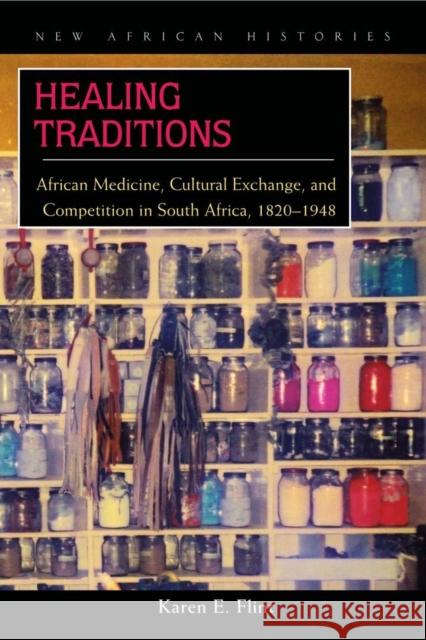Healing Traditions: African Medicine, Cultural Exchange, and Competition in South Africa, 1820-1948 » książka
Healing Traditions: African Medicine, Cultural Exchange, and Competition in South Africa, 1820-1948
ISBN-13: 9780821418505 / Angielski / Miękka / 2008 / 290 str.
Healing Traditions: African Medicine, Cultural Exchange, and Competition in South Africa, 1820-1948
ISBN-13: 9780821418505 / Angielski / Miękka / 2008 / 290 str.
(netto: 129,23 VAT: 5%)
Najniższa cena z 30 dni: 130,31
ok. 30 dni roboczych
Bez gwarancji dostawy przed świętami
Darmowa dostawa!
In August 2004, South Africa officially sought to legally recognize the practice of traditional healers. Largely in response to the HIV/AIDS pandemic, and limited both by the number of practitioners and by patients' access to treatment, biomedical practitioners looked toward the country's traditional healers as important agents in the development of medical education and treatment. This collaboration has not been easy. The two medical cultures embrace different ideas about the body and the origin of illness, but they do share a history of commercial and ideological competition and different relations to state power. Healing Traditions: African Medicine, Cultural Exchange, and Competition in South Africa, 1820-1948 provides a long-overdue historical perspective to these interactions and an understanding that is vital for the development of medical strategies to effectively deal with South Africa's healthcare challenges.
Between 1820 and 1948 traditional healers in Natal, South Africa, transformed themselves from politically powerful men and women who challenged colonial rule and law into successful entrepreneurs who competed for turf and patients with white biomedical doctors and pharmacists. To understand what is "traditional" about traditional medicine, Flint argues that we must consider the cultural actors and processes not commonly associated with African therapeutics: white biomedical practitioners, Indian healers, and the implementing of white rule.
Carefully crafted, well written, and powerfully argued, Flint's analysis of the ways that indigenous medical knowledge and therapeutic practices were forged, contested, and transformed over two centuries is highly illuminating, as is her demonstration that many "traditional" practices changed over time. Her discussion of African and Indian medical encounters opens up a whole new way of thinking about the social basis of health and healing in South Africa. This important book will be core reading for classes and future scholarship on health and healing in Africa.











